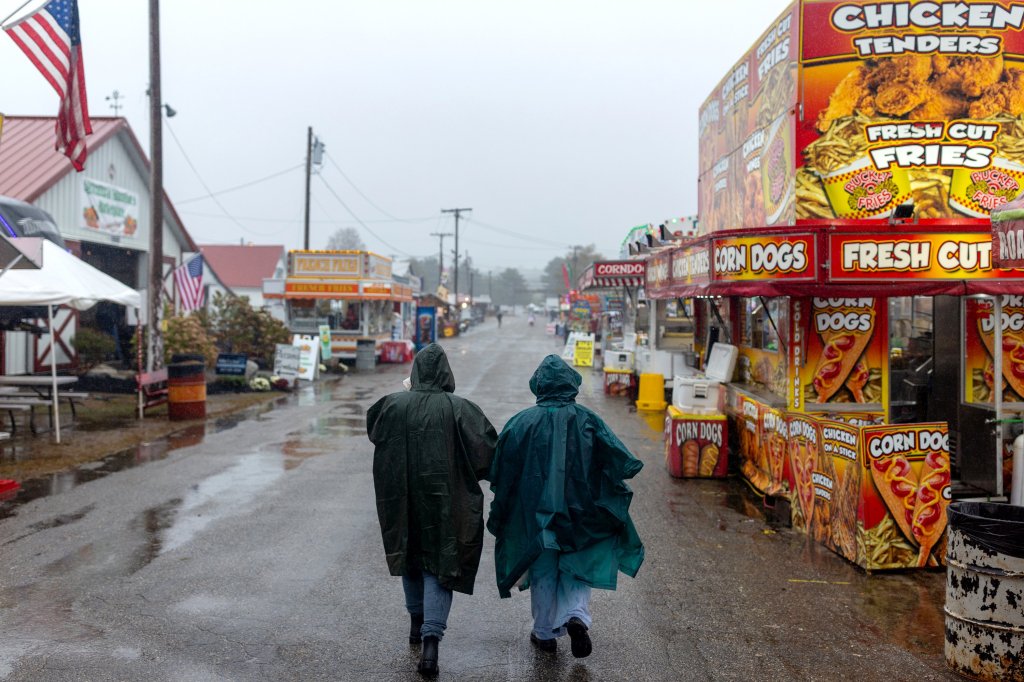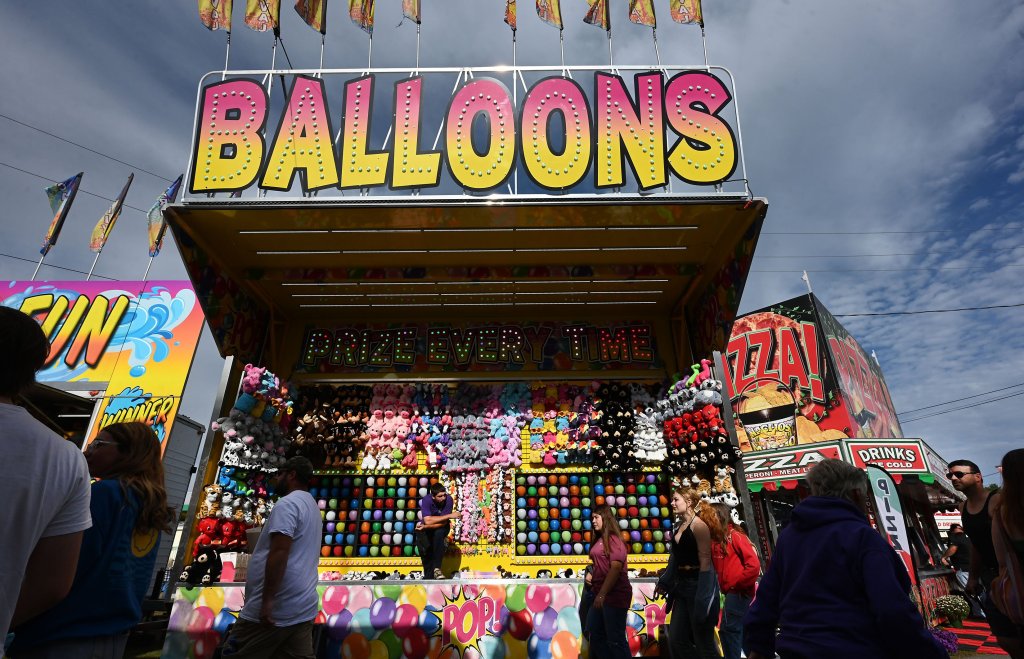
Each year, Erik Fitch sees more and more people trying to buy tickets to the Blue Hill Fair with credit cards, only to be directed to an ATM.
Fitch, the fair’s general manager, said they’d happily accept plastic payments if they could, but at the base of Blue Hill Mountain, the internet access required for those transactions can be hard to secure.
“It’s just not a reliable source, so we’ve just always continued to do cash only,” Fitch said.
Earlier this year, utility crews buried fiber optic cables below the fairgrounds, allowing event organizers to set up a wireless internet network large enough to cover most of the midway, which houses the majority of vendors. Organizers gave the password to a handful of vendors, being careful not to overload the new network.
Fitch said the internet seemed to hold up, save for a short outage on the service provider’s end, but more testing is required before he would be comfortable enough relying on it to take payments at the gate.
“The last thing we want to do is have patrons show up, trying to pay with their cards, (and) it not work,” he said. “I think we need one more year at the fair of putting more people on (to test the network).”
Blue Hill could join a growing number of fairs in Maine that have softened their emphasis on cash. But while an increasing portion of attendees expect ways to pay without cash, bank processing fees and shoddy internet access make some fair administrations and vendors hesitant to change cash-only policies that have served them well for decades.
CONNECTION IS EVERYTHING
Connectivity is a major hurdle for some of Maine’s fairs, especially those on more rural and remote grounds, said Barry W. Norris, executive director of the Maine Association of Agricultural Fairs.
He said it’s not clear how many fairs and vendors remain cash-only, or how many visitors expect card options, but he said everybody seems to be moving toward digital options. But vendors generally prefer being able to offer both, rather than having to turn would-be customers away.
“They don’t have the ability to make it work. It’s not that they don’t want to,” Norris said.
For the most part, attendees know to bring cash — as many repeat visitors have been doing for years — but tourists or those from away may not think to grab a wad, he said.

“I think maybe people that aren’t familiar with what goes on in Maine may not be familiar with how much cash transactions are done in fairs,” Bossin said.
But even as card payments become increasingly common among fair vendors, processing fees and internet hiccups have left some hesitant to change their approach.
Ezra Rugg, manager of Pie Cones, which sells handheld confections at the Common Ground Country Fair, said the business tried using a Square card reader last season but struggled with technical and connectivity issues. So this year, it was back to basics: cash for customers with it and Venmo for those without.
“It was just simpler, and we just didn’t want to mess around with the card fees and the Square,” Rugg said a few days after the fair closed. “Most people are fine to pay cash.”
Elsewhere at this year’s Common Ground Fair, workers and volunteers with Maine GearShare sold sewing accessories and learning kits, taking cash unless buyers could only pay digitally. Executive Director Josh Bossin said the organization averaged about 40 transactions per day, with five to 10 of those using card or Venmo.
Connection issues limited the team to cash during the first morning of the fair, but Bossin said that is typical as vendors and guests descend upon the grounds for the first time, all trying to connect to the cellular network at once. But even with a reliable connection, Bossin said the team always prefers cash.
“We’re a nonprofit, so we’re pretty small. It would always be better for us to do cash instead of paying the credit card fees,” Bossin said. “We have no problem taking a card if it didn’t cost us money to do it.”
COST OF CREDIT
The Fryeburg Fair, which starts Saturday and is usually the last of the season, has accepted digital payments for tickets for about five years, said spokesperson Rachel Damron. To prevent card processing fees from cutting into the fair’s bottom line, the fair tacks a $2 fee onto every online ticket sale.
Though she said some vendors remain cash-only, “everybody’s moving toward taking credit cards.”
Credit card fees are also the main reason admission to the Cumberland Fair remains cash only, though an increasing number of vendors have widened what they accept, said Secretary Liz Tarantino. The fair installed ATM at its gates about five years ago.
“We post everywhere that we can possibly think of that it is cash only,” she said.
Tracy Kunkins, who sells produce at Parson’s Farm’s Cumberland Fair stand, said about 70% of their transactions are done in cash. And customers are happy to spend it.
“They’re at the county fair,” Kunkins said. “It’s not like in New York City at a high-end event, you know?”

We invite you to add your comments. We encourage a thoughtful exchange of ideas and information on this website. By joining the conversation, you are agreeing to our commenting policy and terms of use. More information is found on our FAQs. You can modify your screen name here.
Comments are managed by our staff during regular business hours Monday through Friday as well as limited hours on Saturday and Sunday. Comments held for moderation outside of those hours may take longer to approve.
Join the Conversation
Please sign into your CentralMaine.com account to participate in conversations below. If you do not have an account, you can register or subscribe. Questions? Please see our FAQs.